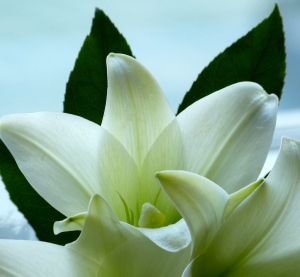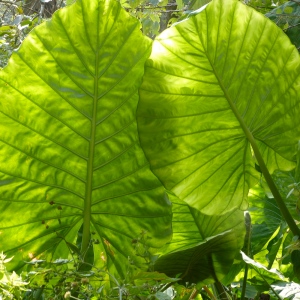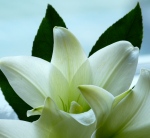A haiku travel journal
27/06/2014 at 5:41 pm | Posted in Uncategorized | 5 CommentsTags: Guan yin, Guidance, inspiration, meditation, parenting, poetry, self-development, special needs, Spirituality, travel, wellbeing
On the plane between London and Hong Kong, I thought I’d write a travel journal with a difference. Each day, I would write a haiku poem. My understanding of haiku is that it distils nature and our own true nature in a few short lines. In the English version, that most often means 5 syllables, then 7, then another 5. I wanted to do this for fun, and also to see if it brought me new insights.
The writing began as soon as we reached the refuge of our comfortable hotel.
Guan yin tea and bath
Fragrant lilies scent the dark
Harbour lights beyond.
Haiku traditionally loves contrast. Intuitively, I love the space between contrasts. During our days in Hong Kong, I was beginning to notice a very human trait: in the act of concealing, we end up revealing.
Incense and Man Mo
Tiny shrines by shops of jade
Bird song on the Peak.
We were travelling as a family, which included my 18-year-old son Tim, who has learning difficulties and uses a wheelchair. Quickly we discovered that the streets were empty of others like Tim. It dawned on us that were connecting with a culture which believed that young people with special needs should stay at home.
An owl stares at us
in the Museum of Art
Kowloon’s rich treasure.
Most people simply, politely, ignored Tim, as they might ignore anything embarrassing, though we noticed plenty of covert glances. However, one day a taxi driver became visibly upset when he spotted Tim, and hissed at us while he drove erratically to our destination. We brushed off his crazy behaviour. But we wondered about it. We were beginning to feel that Tim – and we – were intrepid simply by being there. Mad taxi rides aside, we felt rather pleased with ourselves.
Wow! Dim sum Tim Tim
at the old Luk Yu Tea House
Fountains and Flowers.
Someone told us one evening that the Buddhist belief in reincarnation was often interpreted to mean that handicapped children and young people must have done something wrong in a previous lifetime. Therefore, their presence brought shame to their families. They were hidden away. Sometimes neglected, sometimes worse. Unwittingly, we were challenging that tradition.
After the sampans
barefoot in a sandy bay
Gods gaze at the sea.
Maybe all that scrutiny had something to do with it, but Tim’s wheel chair slipped on the sandy steps by the watchful concrete sculpted gods on the sea shore and he bruised his foot. Moments before the accident, I had been searching for Guan Yin, the Chinese goddess of mercy, among the seaside statues, but only found a rather overblown version of her, stripped of any spiritual truths.
However, I did experience peace each morning as I meditated in our high-up hotel room. I witnessed night turn to day. And in that quietness the insights emerged.
Morning mist makes clear:
we came to see, and be seen.
Each of us is loved.
That then was the truth we were exemplifying as a family. Sometimes it seems to me that the four of us (including Tim’s able younger sister) are four corners of a square. Each corner is equally important to create the whole. Each of us is equally valued within the family. This is normal for us, and perhaps also for our culture.
And then I wondered if perhaps families like us might tacitly encourage other families to take their disabled members out and about a bit more.
I noticed that I had begun my haiku travel journal with reference to Guan Yin – or, at any rate, the green tea named in her honour. And now I was ending my journal with the same sacred name.
Love and compassion
are divine gifts from Guan Yin
May all feel both here.
5 Comments »
RSS feed for comments on this post. TrackBack URI
Leave a reply to Trevor Cancel reply
This site uses Akismet to reduce spam. Learn how your comment data is processed.
-
Processing…Success! You're on the list.Whoops! There was an error and we couldn't process your subscription. Please reload the page and try again.
-
Recent Posts
Suzanne Askham
Website Built with WordPress.com.
Entries and comments feeds.





Love this. Wish I could make it to the evening session.
LikeLike
Comment by Cheryl (@CherylInTheUK)— 29/06/2014 #
Thank you, Cheryl. That would be so nice. Hope T had a happy birthday and sorry I put the wrong month on the card 🙂
LikeLike
Comment by Suzanne Askham— 29/06/2014 #
Sad comment on your hissy-fit driver- but your words reminded me strongly that love drives out fear and it takes courage to face up to a different culture in so direct a way. His inability to get beyond his own fear of the unknown will only hamper further development in the loving kindness dept.for him- and he would do well to consider his own reincarnation options in light of this.
Compassion does allow for forgiveness- but this will never be known to him.
Much love- Trevor
LikeLike
Comment by Trevor— 30/06/2014 #
Hi Trevor, just realised I haven’t replied to your comment. Thank you for these supportive words about love and courage. I wanted to add that the taxi driver may himself have had some issues of his own. We got the impression that he hadn’t had the most blessed life. So maybe the compassion needs to start with us towards him. We never know what other people may be struggling with. With love. x x
LikeLike
Comment by Suzanne Askham— 15/07/2014 #
I know you always reply Suzanne, so just had to wait 🙂 On my final comment, I did mean that he won’t receive forgiveness from you directly due to lack of ongoing contact. What the effect of other events in his life engender is open to conjecture, of course. We all have the ability to change – one of the joys [sometimes] of being human. See you soon x
LikeLike
Comment by Trevor— 16/07/2014 #